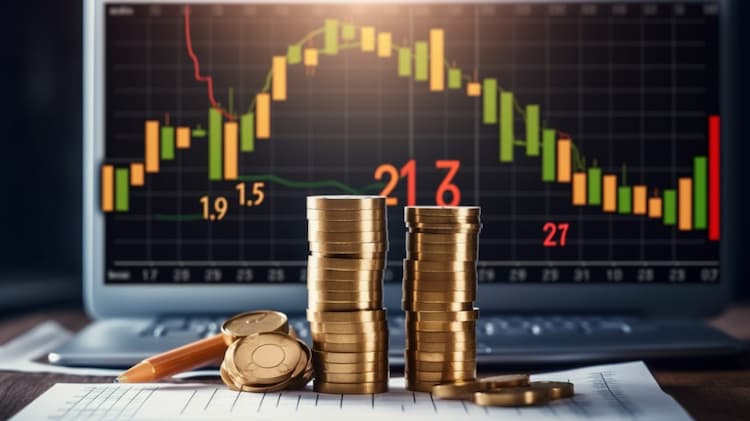
What are the best BlackRock ETFs?
BlackRock, Inc. is one of the world's largest investment management companies and offers a wide range of exchange-traded funds (ETFs) through its subsidiary iShares. With a diverse selection of investment options, BlackRock's ETFs have gained popularity among investors seeking exposure to various asset classes and market segments. In this article, we will explore some of the best BlackRock ETFs that have garnered attention for their performance, innovation, and suitability for different investment goals. Whether you are a seasoned investor or just starting to build your portfolio, these BlackRock ETFs can potentially be worth considering as part of your investment strategy.
Overview of BlackRock ETFs
BlackRock, one of the largest asset management firms in the world, offers a wide range of exchange-traded funds (ETFs) designed to meet various investment objectives. With a strong reputation for delivering innovative and cost-effective investment solutions, BlackRock has become a prominent player in the ETF market. Among the numerous options available, some BlackRock ETFs have consistently outperformed their peers and gained popularity among investors seeking long-term growth and diversification opportunities.
Comparing iShares Core S&P 500 ETF (IVV) and iShares Russell 2000 ETF (IWM)
One notable BlackRock ETF is the iShares Core S&P 500 ETF (IVV), which aims to track the performance of the S&P 500 Index, a benchmark representing the performance of 500 large-cap U.S. companies. IVV provides investors with exposure to the overall U.S. stock market and has a long track record of delivering solid returns. It offers low expenses and provides broad diversification across various sectors and industries.
Another BlackRock ETF worth considering is the iShares Russell 2000 ETF (IWM). This ETF seeks to track the performance of the Russell 2000 Index, which consists of small-cap U.S. stocks. IWM provides exposure to smaller companies, which can offer higher growth potential but also higher volatility. It allows investors to capture the performance of small-cap stocks and diversify their portfolios beyond large-cap companies.
When comparing IVV and IWM, investors should consider their investment objectives and risk tolerance. IVV provides exposure to larger, more established companies, while IWM focuses on smaller companies. Additionally, IVV has a lower expense ratio compared to IWM. Both ETFs have performed well historically, but their performance may vary depending on market conditions and the overall performance of large-cap and small-cap stocks.
 BlackRock ETF,IWM,IVV overlap What are the best BlackRock ETFs?
BlackRock ETF,IWM,IVV overlap What are the best BlackRock ETFs?
Why Invest in BlackRock ETFs?
BlackRock ETFs offer several advantages for investors. First, they provide instant diversification by holding a basket of securities, which can help mitigate individual stock risk. Additionally, ETFs trade on an exchange like stocks, allowing investors to buy or sell shares throughout the trading day at market prices. This liquidity makes ETFs a flexible investment option.
BlackRock ETFs also tend to have lower expense ratios compared to actively managed mutual funds, making them a cost-effective choice for long-term investors. Furthermore, BlackRock's extensive research and risk management capabilities contribute to the development of ETFs designed to meet specific investment needs, from broad market exposure to sector-specific strategies.
Are BlackRock ETFs Suitable for You?
Before investing in any ETF, including BlackRock ETFs, it's essential to assess your investment goals, risk tolerance, and time horizon. Consider consulting a financial advisor or doing thorough research to determine which BlackRock ETF aligns with your investment objectives. Evaluate the ETF's underlying holdings, expense ratio, performance history, and the broader economic and market conditions that may impact its performance.
While BlackRock ETFs have a strong reputation for their quality and performance, it's crucial to remember that past performance is not indicative of future results. Conducting comprehensive due diligence and understanding the risks associated with investing in ETFs are essential for making informed investment decisions.
Conclusion
BlackRock offers a wide selection of ETFs designed to cater to different investment strategies and objectives. Among the best BlackRock ETFs, the iShares Core S&P 500 ETF (IVV) and iShares Russell 2000 ETF (IWM) stand out as popular options for investors seeking exposure to the U.S. stock market. However, it's important to carefully evaluate your investment goals and risk tolerance before investing in any ETF, including those offered by BlackRock.
Disclaimer: This article is for informational purposes only and does not constitute investment advice. It is not providing any investment advisory services. Investors should carefully consider their own investment objectives and consult with a professional advisor before making any investment decisions.
Sources:
BlackRock iShares (https://www.ishares.com/)
Investopedia: iShares Core S&P 500 ETF (IVV) (https://www.investopedia.com/articles/exchange-traded-funds/08/ishares-sp-500-etf.asp)
Investopedia: iShares Russell 2000 ETF (IWM) (https://www.investopedia.com/articles/investing/092415/what-ishares-russell-2000-etf-iwm.asp)
FAQ
What are the best BlackRock ETFs?
The best BlackRock ETFs can vary depending on individual preferences and investment goals. However, here are six popular BlackRock ETFs worth considering:
What factors should I consider when evaluating BlackRock ETFs?
When evaluating BlackRock ETFs, consider factors such as expense ratios, tracking accuracy, liquidity, assets under management (AUM), the investment objective, and the performance history of the ETF.
How do I choose the right BlackRock ETF for my investment goals?
To choose the right BlackRock ETF for your investment goals, consider factors such as your risk tolerance, desired exposure to specific asset classes or market segments, investment time horizon, and the overall market outlook for the particular investment strategy of the ETF.
Are there any specific risks associated with investing in BlackRock ETFs?
Like any investment, BlackRock ETFs carry certain risks. These risks can include market volatility, issuer-specific risks, interest rate risks (for bond ETFs), and geopolitical or economic uncertainties that may affect the underlying assets of the ETF.
How can I research the performance of BlackRock ETFs?
You can research the performance of BlackRock ETFs by analyzing historical returns, comparing them to relevant benchmarks or indices, reviewing fund prospectuses and fact sheets provided by BlackRock, and considering ratings and analysis from reputable financial research providers.













